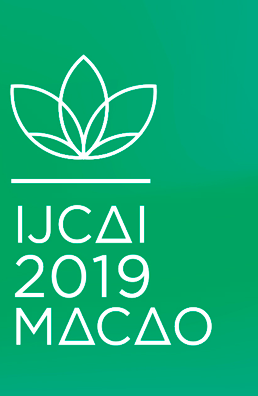What can FCA do for Artificial Intelligence?

Formal Concept Analysis (FCA) is a mathematically well-founded theory aimed at data analysis and classification. FCA allows one to build a concept lattice and a system of dependencies (implications) which can be used for many AI needs, e.g. knowledge processing involving learning, knowledge discovery, knowledge representation and reasoning, ontology engineering, and as well as information retrieval and text processing. Thus, there exist many "natural links" between FCA and AI.
Recent years have been witnessing increased scientific activity around FCA, in particular a strand of work emerged that is aimed at extending the possibilities of FCA w.r.t. knowledge processing, such as work on pattern structures and relational context analysis. These extensions are aimed at allowing FCA to deal with more complex than just binary data, both from the data analysis and knowledge discovery point of view and from the knowledge representation point of view, including, e.g., ontology engineering. All these works extend the capabilities of FCA and offer new possibilities for AI activities in the framework of FCA.
TOPICS OF INTEREST
Workshop topics include but are not limited to:
- Concept lattices and related structures: description logics, pattern structures, relational structures.
- Knowledge discovery and data mining with FCA: association rules, itemsets and data dependencies, attribute implications, data pre-processing, redundancy and dimensionality reduction, classification and clustering.
- Knowledge engineering and ontology engineering: knowledge representation and reasoning.
- Scalable algorithms for concept lattices and artificial intelligence "in the large" (distributed aspects, big data).- Applications of concept lattices: semantic web, information retrieval, visualization and navigation, pattern recognition.
- The workshop will include time for audience discussion for having a better understanding of the issues, challenges, and ideas being presented.
The workshop welcomes submissions in pdf format in Springer's Lecture Notes in Computer Science style. Submissions can be:
- technical papers not exceeding 12 pages,
- system descriptions or position papers on work in progress not exceeding 6 pages.
Submissions are done via EasyChair.
All papers will be judged based on their technical merits, originality, relevance to areas of interest, and presentation clarity. Papers should describe original work that has not been published before, is not under review elsewhere, and will not be submitted elsewhere during FCA4AI 2019's review period.
Accepted papers will be published in CEUR Workshop Proceedings (online) and FCA4AI Homepage (online).
Formal Concept Analysis (FCA) is a mathematically well-founded theory aimed at data analysis and classification. FCA allows one to build a concept lattice and a system of dependencies (implications) which can be used for many AI needs, e.g. knowledge processing involving learning, knowledge discovery, knowledge representation and reasoning, ontology engineering, and as well as information retrieval and text processing. Thus, there exist many "natural links" between FCA and AI.
Recent years have been witnessing increased scientific activity around FCA, in particular a strand of work emerged that is aimed at extending the possibilities of FCA w.r.t. knowledge processing, such as work on pattern structures and relational context analysis. These extensions are aimed at allowing FCA to deal with more complex than just binary data, both from the data analysis and knowledge discovery point of view and from the knowledge representation point of view, including, e.g., ontology engineering. All these works extend the capabilities of FCA and offer new possibilities for AI activities in the framework of FCA.
TOPICS OF INTEREST
Workshop topics include but are not limited to:
- Concept lattices and related structures: description logics, pattern structures, relational structures.
- Knowledge discovery and data mining with FCA: association rules, itemsets and data dependencies, attribute implications, data pre-processing, redundancy and dimensionality reduction, classification and clustering.
- Knowledge engineering and ontology engineering: knowledge representation and reasoning.
- Scalable algorithms for concept lattices and artificial intelligence "in the large" (distributed aspects, big data).- Applications of concept lattices: semantic web, information retrieval, visualization and navigation, pattern recognition.
- The workshop will include time for audience discussion for having a better understanding of the issues, challenges, and ideas being presented.
SUBMISSION DETAIS
The workshop welcomes submissions in pdf format in Springer's Lecture Notes in Computer Science style. Submissions can be:
- technical papers not exceeding 12 pages,
- system descriptions or position papers on work in progress not exceeding 6 pages.
Submissions are done via EasyChair.
All papers will be judged based on their technical merits, originality, relevance to areas of interest, and presentation clarity. Papers should describe original work that has not been published before, is not under review elsewhere, and will not be submitted elsewhere during FCA4AI 2019's review period.
Accepted papers will be published in CEUR Workshop Proceedings (online) and FCA4AI Homepage (online).
Preliminary workshop program
8:30 - 8:45 Welcome & Overview
8:45 - 10:30 Tutorial: Dmitry Ilvovsky (Higher School of Economics, Moscow), Natural language processing and FCA
10:30 - 11:00 Morning tea (30 minutes)
11:00 - 11:30 Paper presentation: Chandrasekhar Anantaram, Mouli Rastogi, Mrinal Rawat and Pratik Saini. Enabling natural language analytics over relational data using Formal Concept Analysis
11:30 - 12:00 Paper presentation: Amit Sangroya, C. Anantaram, Mrinal Rawat and Mouli Rastogi. Using Formal Concept Analysis to explain black box deep learning classification models
12:00 - 12:30 Paper presentation: Boris Galitsky and Dmitry Ilvovsky. Validating correctness of textual explanation with complete discourse trees
12:30 - 13:00 Paper presentation: Boris Galitsky and Dmitry Ilvovsky. Expanding training datasets by generalization of linguistic structures
13:00 - 15:00 lunch (2 hours)
15:00 - 15:45 Invited talk: TBA
15:45 - 16:15 Paper presentation: Boris Galitsky. On a chatbot providing a defeating reply in a customer support domain
16:15 - 16:45 Afternoon tea (30 minutes)
16:45 - 17:00 Wrap-up discussion
17:00 Close
WORKSHOP CHAIRS
- Sergei O. Kuznetsov, National research university Higher School of Economics, Russia
- Amedeo Napoli, LORIA-INRIA, Vandoeuvre-lès-Nancy, France
- Sebastian Rudolph, Technische Universitaet Dresden, Germany
PRELIMINARY WORKSHOP PROGRAM
Expanding training datasets by generalization of linguistic structures
Validating correctness of textual explanation with complete discourse trees
Learning Ontologies: A Question-Answer Game
Using Formal Concept Analysis to explain black box deep learning classification models


